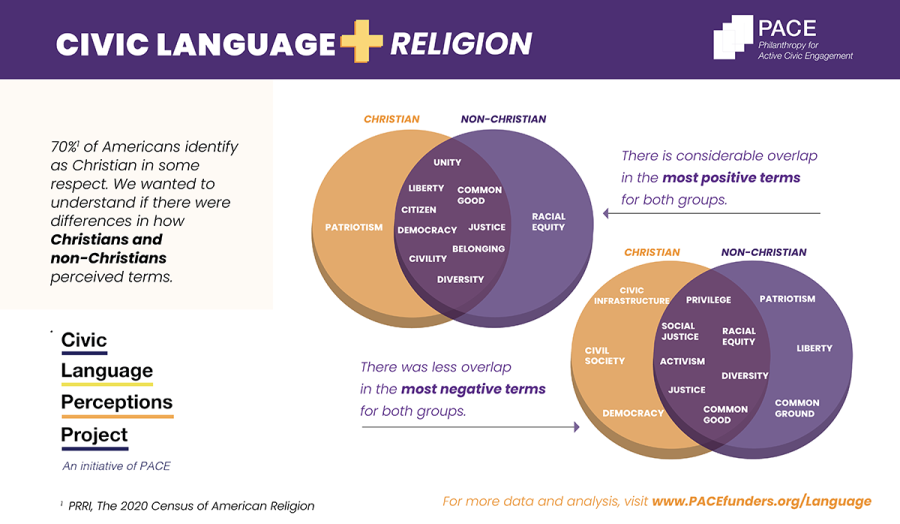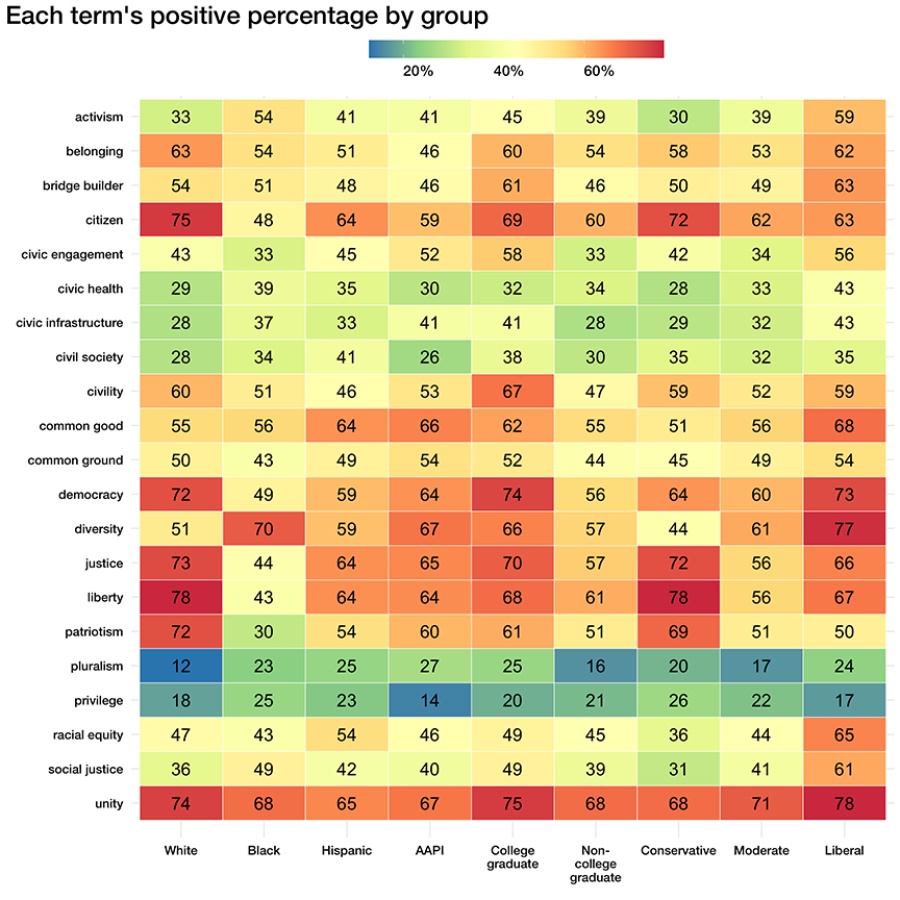In a time when divisions seem to be widening, what can philanthropy learn about how its language helps to bridge or exacerbate those divides? Are the terms we use meaningful to grantees and those they exist to serve? These are the driving questions behind Fetzer’s early involvement in a national Civic Language Perception Project with Philanthropy for Active Civic Engagement (PACE).
The PACE project sought to take the temperature of language that philanthropy uses to describe its civic engagement and democracy work. In other words, how do we (voting Americans of different ages, races, and affiliations) respond to terms like civic engagement or democracy or patriotism, activism, or justice?
The project surveyed 5,000 US voters about their perceptions of these 21 terms.
- Activism
- Belonging
- Bridge builder
- Citizen
- Civic engagement
- Civic health
- Civic infrastructure
- Civil society
- Civility
- Common good
- Common ground
- Democracy
- Diversity
- Justice
- Liberty
- Patriotism
- Pluralism
- Privilege
- Racial equity
- Social justice
- Unity
The study also tracked each term’s sentiment in various demographics, including:
- Age
- Education
- Gender
- Political Affiliation
- Race
- Religious Affiliation
It may come as no surprise that an analysis of the data finds that no universal language or set of terms works for everyone. But here are some of the findings that stood out.
- The three most positively perceived terms were unity, liberty, and citizen.
- The three most negatively perceived terms were: pluralism, privilege, and civil society.
Related to Fetzer’s work to build the spiritual foundation for a loving world, we appreciated learning about the findings specific to PACE’s Civic Language + Religion report. Some highlights include:
- Christians were 5.92 percent more likely to be favorable toward various terms than people with other religious or secular identities.
- Christians were more favorable toward patriotism.
- People from non-Christian religious traditions and secular identities were more favorable toward racial equity.
And as the following chart illustrates, there's a lot of connection to be found in the middle and insightful differences to be found at the edges.

Looking more broadly across the data, you’ll find a wealth of information about each term’s sentiment by group, with those in the blue-green realm having a cooler reception and those in the orange-red realm having a warmer reception.

This is not about right words and wrong words, blue words and red words. It's about knowing how people receive words, learning what is important to them, and understanding that our experiences can differ vastly.
For philanthropy more broadly, there are some key insights:
- Messengers matter: the data show that perceptions of terms are influenced by who uses them.
- There are disconnects between how philanthropy wants these terms to land and how various non-philanthropic audiences receive them.
- Despite perceptions around our very real divisions, taken collectively, positivity outpaces negativity.
Fetzer hopes this study sparks a larger conversation about the language philanthropy uses. We are taking these findings to heart; sharing these learnings internally; and discussing how they can inform our communication within philanthropy and with many other audiences. At its heart, philanthropy is “love of humankind.” The PACE Civic Language Perceptions Survey is a good reminder to extend grace in our communications and to lead from a place of love.
Angela Graham is Director of Southwest Michigan Strategies at the Fetzer Institute.
Reports analyzed:
“But what should we say instead…?” | by Kristen Cambell | Office of Citizen | Jan, 2023 | Medium